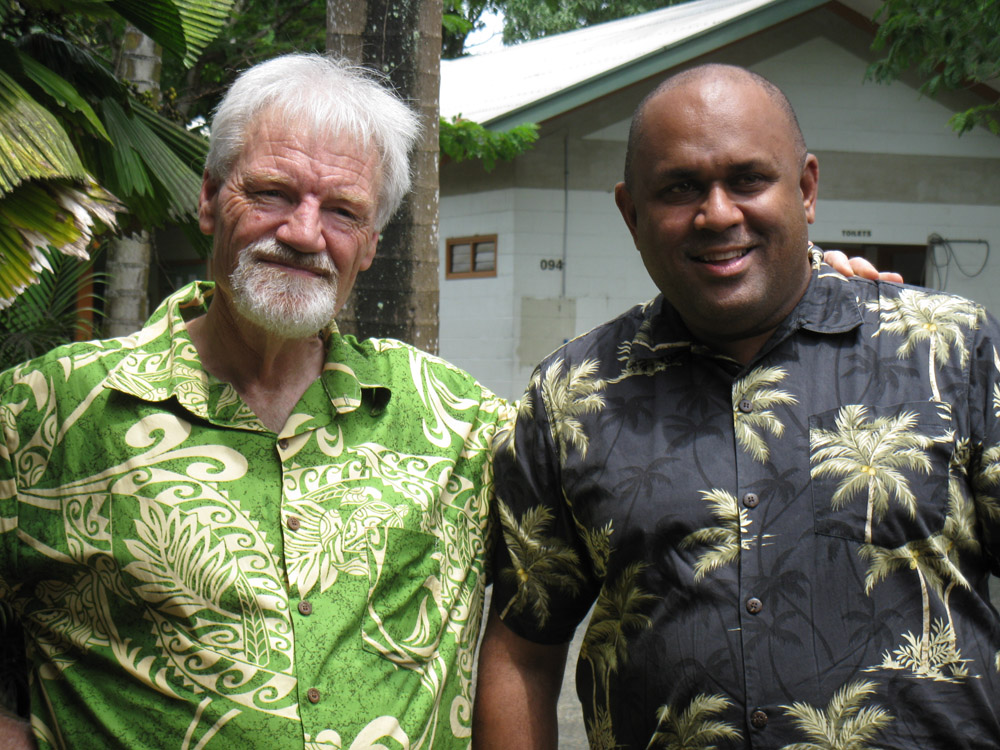
Suddenly “peace journalism” has emerged as the flavour of the month in Fiji – and has even had a debut in New Zealand as an idea. A panel of local Fiji journalists at last week's University of the South Pacific seminar admitted they knew little about the approach. And, to be frank, were a little distrustful , as many journalists often are when confronted with a new concept and their natural skepticism pushes aside rational argument.
One journalist admitted she had asked around her newsroom (Fiji’s largest) about what peace journalism was. The answer: “Journalism about peace” - a rather unhelpful contribution from a colleague. In spite of the visit of the celebrated author and media theorist about peace journalism Professor Jake Lynch, director of the University of Sydney’s Centre for Peace and Conflict Studies , to Suva late last month (and considerable publicity), there was little idea that the notion is about community “empowerment” and actually plain good contextual journalism. The sort of journalism that helps find solutions, rather than adds to a community’s problems.
Speaking on Radio Australia with Geraldine Coutts, Professor Lynch said:
Traditionally, the Citizens Constitutional Forum and numerous other advocacy groups would do what they call hard-hitting advocacy. And they would take a stance which was very directly critical of the government for example. Now that's one way of ventilating [civil rights and social] issues, and it would fit with expectations among journalists of the kind of role they might play given that Fiji's media probably inherited a lot of its assumptions from the British system.
But it's certainly not the only way to ventilate those issues. And what I've been encouraging them to do is to think how they can arrange for the kind of testimony and perspectives of people at the grassroots, people who are dealing with these issues in everyday life to be more widely known and more widely appreciated, and thereby contribute to a national conversation in Fiji about the issues on their own merits.
It doesn't necessarily have to be fed through the filter perhaps familiar to audiences in Australia, where so many issues are wrapped around a claim by the opposition and a counter claim by the government, that kind of thing.
Barely a week later, at the inaugural Media, Investigative Journalism and Technology conference organised at AUT University by the Pacific Media Centre, the first-ever “peace journalism” seminar was staged in New Zealand – convened by a doctoral candidate from Pakistan, Rukhsana Aslam (pictured) and Dr Heather Devere of the National Centre for Peace and Conflict Studies at Otago University. Aslam, who has contributed a chapter on peace journalism education to a new book Peace Journalism, War and Conflict Resolution, was well supported by Shailendra Singh of USP, One Television’s Koroi Hawkins in the Solomon Islands, and Taimi Media Network chief executive Kalafi Moala among others.
A few days later, Moala was in Suva along with senior journalism lecturer Dr Levi Obijiofor from the University of Queensland and me. Both Obijiofor, who spoke about a case study in the Niger Delta involving indigenous peoples and multilateral oil companies, and I have papers on peace journalism appearing in the forthcoming Journal of Pacific Studies. Moala gave an impassioned address about post-election realities in Tonga and how “democracy” was not necessarily a panacea and Pacific journos should not blindly follow Western news values. My message included, after an analysis of many conflicts in the Pacific region and the role played by media:
Peace journalism or conflict-sensitive journalism education and training ought to provide a context for journalists to ensure that both sides are included in any reports. The reporting would also include people who condemn the violence and offer solutions. Blame would not be levelled at any ethnicity, nor would combatants be repeatedly identified by their ethnicity. But the reporting would constantly seek to explain the deeper underlying causes of the conflict. This approach to journalism surely could offer some hope for conflict resolution in the Pacific and a peaceful future.
* Go to the original Cafe Pacific item for full links
* Peace , Journalism, War and Conflict Resolution
* Kalafi Moala on democracy and Western news values
* Rukhsana Aslam on the NZ peace journalism seminar



